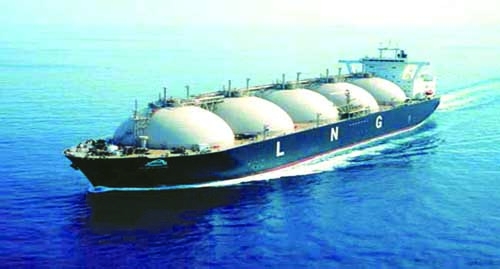
Special Report :
Against the backdrop of remittances from Bangladesh’s primary forex source, its migrant workers, down by 15% within a year and recent decline of 30% in RMG orders, the country is moving forward with implementation of a third LNG terminal which will cost north of US$200,000 per day in capacity payments.
The project which was awarded to Summit Oil and Gas Co., will be its second such floating terminal in the Bay of Bengal against recommendation of leading experts who have proposed to reduce dependency on volatile and super expensive LNG imports.
The country is literally burning gold to produce coal. As per REUTERS, the average LNG price for August delivery into north-east Asia was estimated at $39 per million British thermal units (mmBtu). At these prices the country must subsidize power at 75% of the production cost under existing industrial rates.
Bangladesh currently is burning world’s most expensive fossil fuels such as LNG and HFO to produce nearly zero margin garments to remain competitive in the global export markets. Because the country is not a major producer of cotton and its labor costs have reached parity with India, the garments sector, which pays no import duties on raw material, no corporate taxes or VAT, must rely on heavily subsidized power and gas, and cashback incentives on exports to survive.
The government already must pay US$454,000 daily to existing two underutilized LNG floating terminals. With the third terminal added this amount will approach US$700,000 daily whether government can afford LNG imports with its fast-depleting forex reserves.
The third FSRU contract was awarded under the Speedy Supply of Power and Energy (Special Provision) Act bypassing international competitive tending process, taking into consideration local gas production, demand, supply and pipeline capacity, and to mitigate the gas deficit by 2022-23 and onward, according to a letter sent to Petrobangla justifying LNG imports.
After the Russian invasion of Ukraine, Europe is moving forward with a plan to reduce its dependence on Russian gas by buying LNG from elsewhere. Competition from Europe for limited global LNG supply has already resulted in rapid price escalation, which could increase even further in coming years as countries buy more LNG instead of Russian gas.
To conserve foreign currency reserves, the Ministry of Power, Energy and Mineral Resources recently suspended operation of all diesel-based power plants in the country. However, the capacity charges for these idle plants nevertheless.
It’s worthwhile to note that a 200MW diesel based IPP contract was awarded using the special provision after refusing to accept BPDB qualified competitive bids won through international tenders for two HFO projects at ½ the price in 2016.
Despite an excess of power production capacity, the Power Ministry has been the adamant champion of awarding contracts under the Special Provision without international tenders.
In February of this year, the Ministry awarded another LNG based 660 MW capacity power plant to Confidence Group at Mirsarai in Chattogram on build-own-operate basis under power purchase agreement.
Bangladesh which has a heavily regulated power sector is one of the few countries that provide capacity payments for idle plants. For the 2020-21 fiscal year, the capacity charge paid to 37 private power producers amounted to the equivalent of $1.35 billion as per BPDB.

